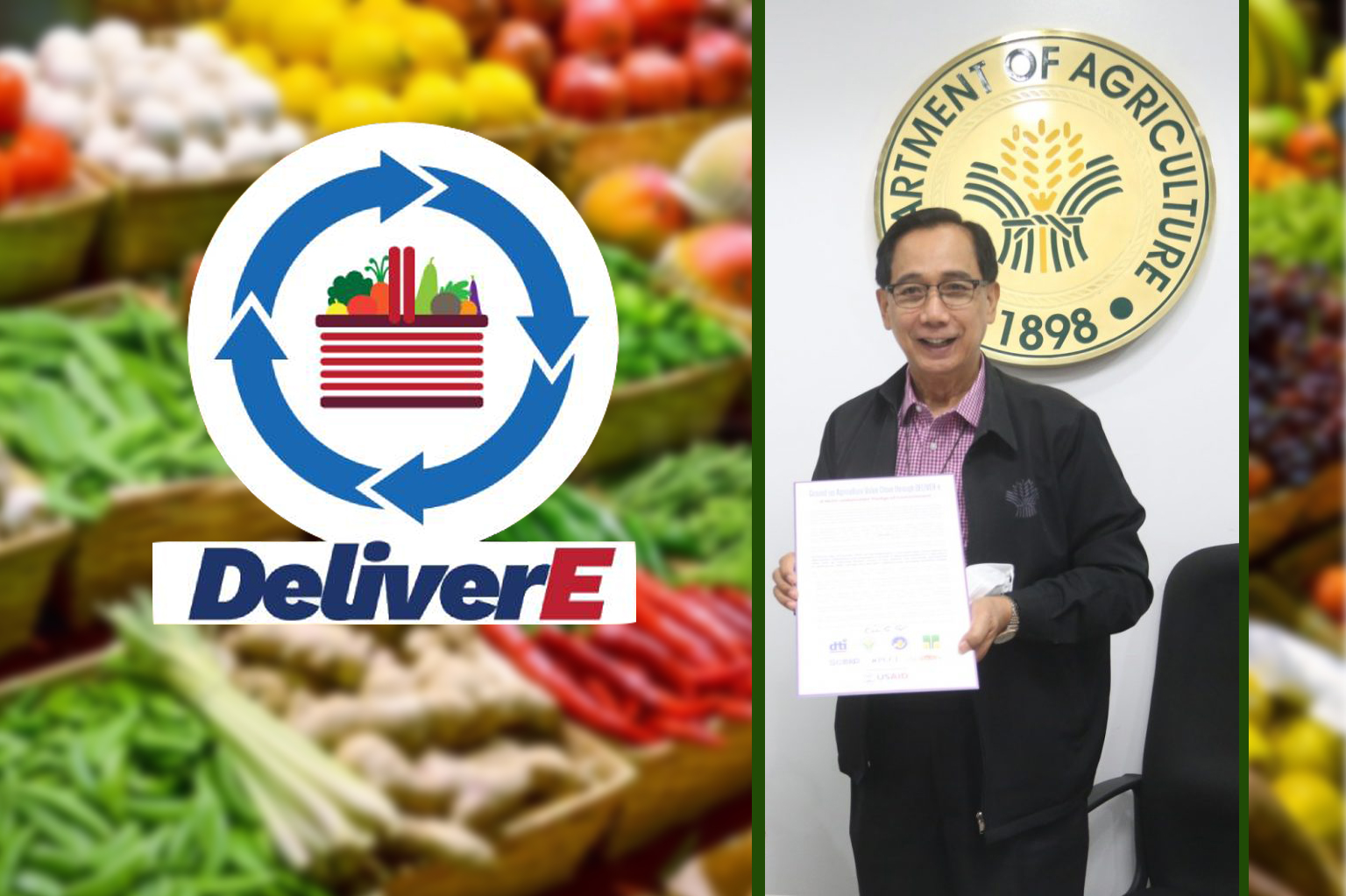
The Department of Agriculture (DA) is ramping up the digitalization of the country’s agriculture sector to push its planned transformation towards the “4th Industrial Revolution.”
In his remarks during the go-live launch of the “Deliver-E” online delivery platform for farm goods, Agriculture Secretary William Dar said “online” is the new byword in safeguarding food security in the country.
“A more comprehensive digitalization of the agricultural supply chain could germinate further growth in the agriculture sector,” he said, noting that “fully embracing digitalization will drive the sector to journey towards the 4th Industrial Revolution or Agriculture 4.0.”
Deliver-E was organized in partnership with the Department of Trade and Industry (DTI), Food Terminal Inc. (FTI), farm cooperatives, the private sector, and the United States Agency for International Development (USAID). Together, on December 14, 2020, they held a virtual pledge signing.
The farm goods delivery platform is blockchain-powered and integrates related e-commerce and logistics application services, from consolidation point to a central warehousing facility, and then to last-mile transport services to reach end-clients.
DTI Secretary Ramon Lopez said Deliver-E is designed in part to raise farmers’ incomes by eliminating middlemen.
“This initiative is all about bringing farm produce closer to consumers and cutting layers of traders. Through technology and innovation, it will be game-changing not only for our farmers, but also for consumers,” he added.
Since its soft-launch in April this year, Deliver-E has already helped about 600 farmers in Luzon and the southern Philippines “by doubling their income from their harvests and reducing waste from 50 percent down to only 5 percent,” said Lopez.
More than 260 tons of fresh fruit and vegetables were moved using the online platform, generating over P7.15 million in sales, he added.
For his part, Secretary Dar said the lessons from DA’s Kadiwa ni Ani at Kita program, which earned more than P6 billion in revenues and assured markets for agricultural frontliners, bring DA to this natural turning point.
“With the launch of e-Kadiwa, its online platform, the cost-reducing power of digital technology came to the aid of our farmer-producers, lightened the burden on our food MSMEs, and impressively backed household food industries,” he said.
For his part, USAID Acting Mission Director Patrick Wesner said the online platform will help build the capacities of farmers and fisherfolk to become more productive and prepared in the post-pandemic world.
“It offers an inclusive approach to recovery where no one is left behind,” he added.
Wesner also said USAID has allocated P20 million in grants to further improve the capacity of Deliver-E, which include upgrading the user interface and integrating demand and supply analytics to strengthen the agribusiness value chain.
The Deliver-E project will also entail the following tasks:
-
- Deployment of “implementation specialists” to drive farmer on-boarding;
- Farmer interface to input expected produce and asking price;
- Tracking and tracing of movement of trucks, including delivery entries; and
- Warehousing to provide better visibility for trading centers and consolidators.
Secretary Dar said the “multi-stakeholder event sparks hope that many heads are coming together to assist key supply chain players with their technological needs and constraints.” ### (DA StratComms)













